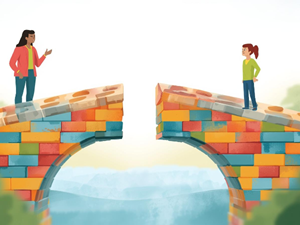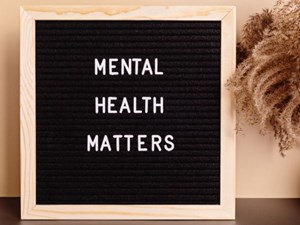In a world where stress, anxiety, and life’s unpredictability are often overwhelming, therapy can provide you with a safe space to process, heal, and grow. While many people associate therapy only with mental illness or crisis, the truth is: therapy is for everyone. Whether you're navigating major life changes, struggling with emotions, or simply seeking personal growth, therapy can be an incredibly valuable resource. Here are ten key reasons therapy is beneficial — and why it might be worth considering for you or someone you care about.…
Blog
What are boundaries? Why do they matter? How do I start setting them? Boundaries are the emotional, mental, and physical limits you set to protect yourself from being used, drained, or manipulated by others. Having healthy boundaries allows you to be close to someone without losing your own sense of self. Before we talk about how you can create and maintain healthy boundaries in your relationships, let’s look at the different types of boundaries.…
Therapy is for all of us—it’s about healing, growth, and becoming our best selves, not just for when life is falling apart. Yet outdated beliefs have tied it to weakness or only “serious” problems.…
“Is it okay to feel this way?” is a question I hear in many forms during therapy sessions. It’s one of the most human things we do—look to others to help us make sense of our internal world. Seeking validation isn’t inherently a problem. In fact, it’s a natural part of being in relationships. But when the need for validation becomes constant, or when our self-worth depends entirely on others’ responses, it can become a source of emotional suffering. Let’s talk about what healthy validation looks like, when it can become a problem, and how to build a more grounded sense of self.…
Talking about mental health with our children isn’t always easy—but it’s one of the most important things you can do as a parent. When kids feel safe sharing their emotions, they are more resilient and better able to cope with stress. Yet there’s often a disconnect. While about 80% of parents say they are comfortable talking about mental health with their children, only about half of teens feel the same way (Pew Research, 2025). The way we communicate matters just as much as starting the conversation itself. As parents, try to refrain from offering advice and guidance. Instead, sit and listen so your children feel seen and heard.…
As researchers studying the link between nutrition and physical health have moved beyond observation and traditional wisdom to embrace multidisciplinary science, they have revealed the crucial role nutrition plays in promoting longevity and vitality. Recent studies show how our dietary choices can significantly impact mental health, overall well-being, and the risk of chronic diseases.…
Finding the right mental health provider is a very personal journey, and it can feel overwhelming. How do you find a therapist that will meet your needs? Before you do an online search or pick up the phone, think about the following things and if they are important to you in choosing a provider. You’ll ask better questions when you have some idea of your preferences.…
Feeling disconnected from loved ones can lead to frustration, often expressed through raised voices, criticism, or passive remarks—all in an effort to seek validation. Unfortunately, these approaches rarely build the connection we crave. In this blog post, Grace Becker, LMSW, Therapist, Dakota Family Services, shares practical strategies to decode arguments, embrace differing perspectives, and navigate conflicts constructively. While you can't control others' actions or words, you can manage how you respond. Discover actionable tips to transform your relationships and shift from conflict to a deeper connection.…
When the pandemic first shifted therapy sessions from offices to screens, many therapists and clients were uncertain. Would the connection be the same? Could you do deep, meaningful work when you weren’t in the same room? Now, years later, it’s clear that not only does telehealth work, but for many people, it works better. As a licensed therapist who has practiced both in person and online, I’ve seen firsthand how telehealth therapy has opened doors that were previously closed to many.…
When we have high blood pressure, a fever, or a broken leg, most of us don’t hesitate to go to the doctor. That is often not the case when it comes to mental health. Many people have told me they didn’t think their symptoms were severe enough to get treatment, that they should just be able to figure it out on their own, and/or that seeing a therapist means they are weak. The truth is mental health is health. And it’s time we started treating it that way.…
My patients often talk about shifts in their mood and energy levels when the seasons change. For many, the transition from winter to spring is not just about weather, but a whole emotional shift. While we may associate spring with blooming flowers, longer days, and bursts of energy, it can stir up a range of emotions. Some people feel the rush of spring fever, while others struggle with the sudden need for change. If you're one of the many people feeling a little "off" as winter fades and the season of renewal begins, know that you're not alone.…
We all have one of four attachment styles that determines how we form emotional bonds and interact in relationships with friends, family, coworkers, partners, and ourselves. Our attachment style develops based on early experiences with caregivers and it evolves as we grow and develop. Learning your attachment style can help you make sense of your behavior so you can communicate and interact more effectively in your relationship with others.…













